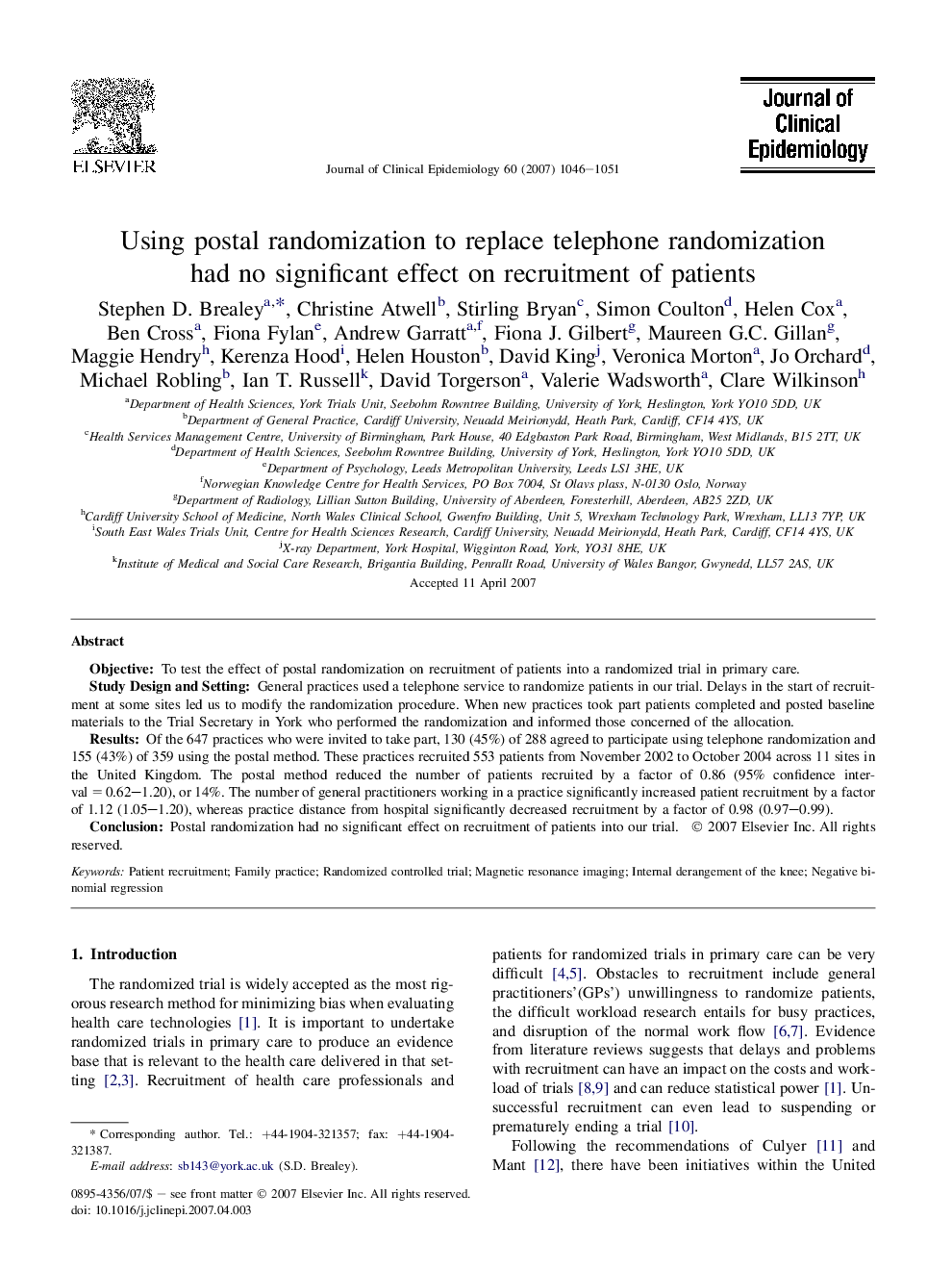| Article ID | Journal | Published Year | Pages | File Type |
|---|---|---|---|---|
| 1083860 | Journal of Clinical Epidemiology | 2007 | 6 Pages |
ObjectiveTo test the effect of postal randomization on recruitment of patients into a randomized trial in primary care.Study Design and SettingGeneral practices used a telephone service to randomize patients in our trial. Delays in the start of recruitment at some sites led us to modify the randomization procedure. When new practices took part patients completed and posted baseline materials to the Trial Secretary in York who performed the randomization and informed those concerned of the allocation.ResultsOf the 647 practices who were invited to take part, 130 (45%) of 288 agreed to participate using telephone randomization and 155 (43%) of 359 using the postal method. These practices recruited 553 patients from November 2002 to October 2004 across 11 sites in the United Kingdom. The postal method reduced the number of patients recruited by a factor of 0.86 (95% confidence interval = 0.62–1.20), or 14%. The number of general practitioners working in a practice significantly increased patient recruitment by a factor of 1.12 (1.05–1.20), whereas practice distance from hospital significantly decreased recruitment by a factor of 0.98 (0.97–0.99).ConclusionPostal randomization had no significant effect on recruitment of patients into our trial.
